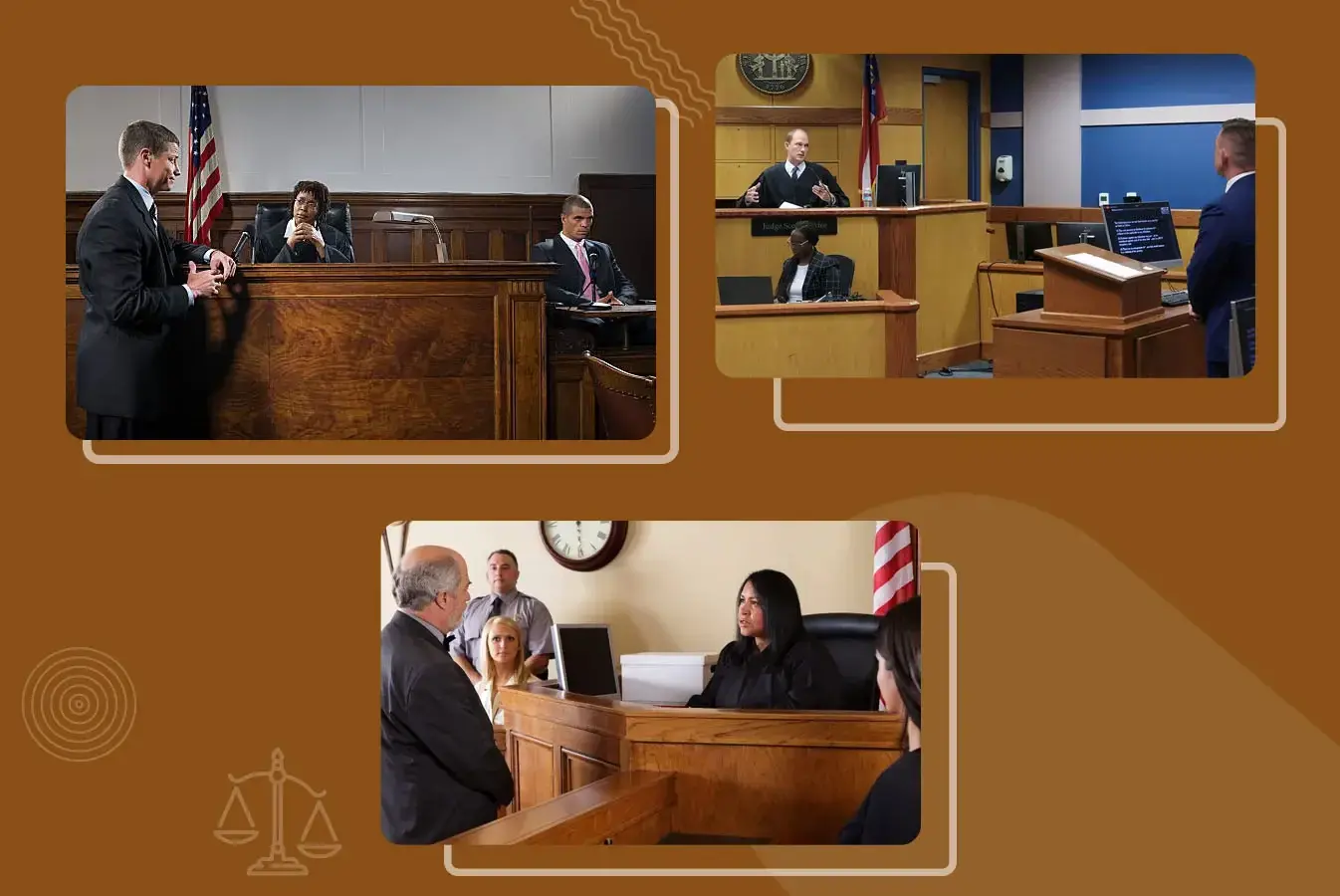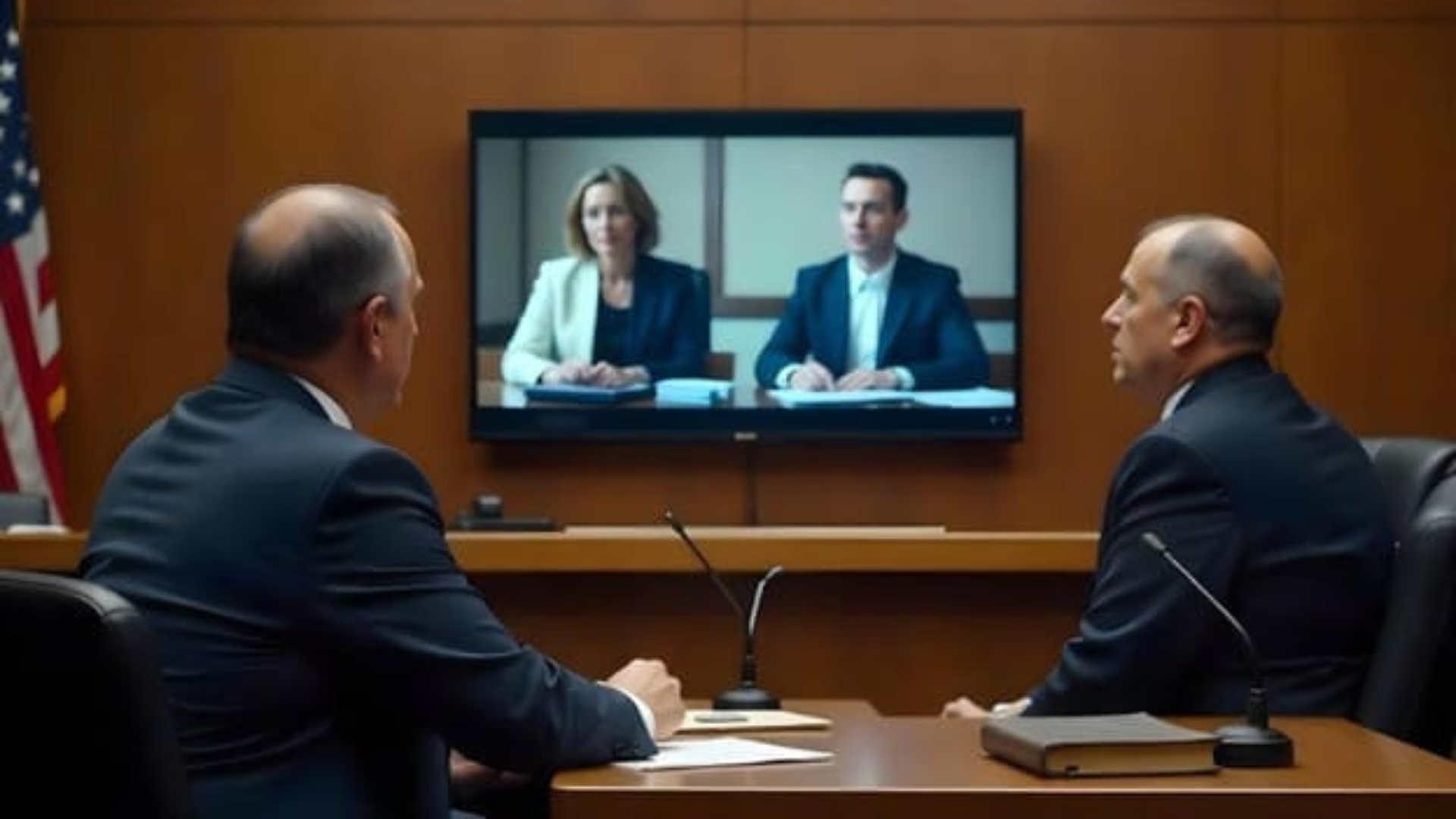Digital Evidence Management System for Prosecutors: The Ultimate Guide
by VIDIZMO Team, Last updated: November 19, 2025, ref:

Discover the importance of a digital evidence management system for prosecutors. Optimize your case outcomes and evidence handling with secure software.
In the world of justice, prosecutors are entrusted with the crucial task of building compelling cases for court trials and ensuring the timely delivery of justice. Digital evidence has become a critical component in approximately 90% of criminal cases.
As the volume of digital evidence continues to grow and new challenges arise, a competent digital evidence management system has become a necessity for prosecutors. From receiving substantial amounts of digital evidence from law enforcement agencies to thoroughly reviewing it for the discovery process, prosecutors face multiple hurdles along the way.
In this blog, you will explore the responsibilities of prosecutors, delve into the challenges they encounter during the discovery management process, and unveil how VIDIZMO’s DEMS (Digital Evidence Management System) emerges as the best prosecutor case management system.
The Role of Prosecutors in Digital Evidence and Discovery Management
The primary duty of prosecutors is discovery management. The discovery management process refers to the systematic handling of evidence during legal proceedings. It involves identifying, collecting, reviewing, and disclosing relevant information and evidence to all parties involved in a case.
The role of prosecutors in the discovery management process and secure evidence managament is crucial to ensuring a fair and transparent legal system. As part of their responsibilities, prosecutors are involved in the following key tasks:
Receiving and Reviewing Evidence
Prosecutors receive a wide range of evidence, including documents, witness statements, CCTV footage, body-worn camera recordings, 911 call recordings, etc. They carefully review and assess the relevance, authenticity, and admissibility of each piece of evidence to determine its potential impact on the case.
Organizing and Categorizing Evidence
Prosecutors organize and categorize the diverse forms of digital evidence files collected from various sources to search, sort, and retrieve the relevant digital evidence files whenever required. This involves assigning unique identifiers, creating case folders, adding detailed case descriptions, and establishing a systematic method of storing and retrieving the evidence when needed.
Disclosing Evidence to the Defense
Prosecutors have a legal obligation to disclose all relevant and exculpatory evidence to the defense in a timely manner. This includes sharing evidence that may undermine the prosecution's case or aid the defense in preparing their arguments. Open and transparent disclosure is vital for upholding the principles of fairness and ensuring a just trial.
Collaboration with Law Enforcement
Prosecutors work closely with law enforcement agencies and other authorized stakeholders to obtain additional information or clarification on the collected evidence. This collaboration helps prosecutors build a stronger case, validate the authenticity of the evidence, and address any potential challenges during the trial.
Maintaining Chain of Custody
Prosecutors are responsible for establishing and preserving the chain of custody for all evidence. They ensure that a detailed record is maintained, documenting each custodial transfer of evidence from its initial collection to its presentation in court. Maintaining a secure and transparent chain of custody is crucial for establishing the reliability and integrity of the evidence.
Adhering to Legal and Ethical Standards
Prosecutors must uphold the highest standards of professionalism, integrity, and ethics during the discovery process. They must comply with applicable laws, court rules, and ethical guidelines governing the disclosure of evidence. This includes protecting the privacy and sensitive information of victims, witnesses, and other parties involved.
By fulfilling these responsibilities, prosecutors play a vital role in ensuring that all parties have access to relevant evidence, promoting transparency, and upholding the principles of justice throughout the discovery management process.
Digital Evidence and Discovery Management: Key Challenges Faced by Prosecutors
Prosecutors face several key challenges in the management of digital evidence on a daily basis. These challenges include:

Volume and Variety of Digital Evidence
The sheer volume and variety of digital evidence pose a significant challenge for prosecutors. With the widespread use of technology, digital evidence can include data from smartphones, computers, social media platforms, surveillance footage, and more. Storing, managing, and organizing this vast amount of diverse digital evidence requires specialized tools and expertise.
Data Complexity and Limited Time
Prosecutors face heightened pressure to meet the demands of producing discoverable evidence from a wide range of sources and sharing it at earlier stages of cases. Failing to comply with discovery laws can lead to the dismissal of viable cases. However, the existing manual process for handling digital evidence is lengthy, expensive, and prone to errors.
With digital evidence arriving in different formats and at other times, prosecutors face significant challenges in producing discovery within tight deadlines. Addressing these complexities requires effective solutions that streamline the discovery process, minimize errors, and enable timely access to evidence.
Preservation of Digital Evidence
Maintaining digital evidence's integrity and chain of custody is crucial for its admissibility in court. Digital evidence can be easily altered, deleted, or tampered with, making it essential for prosecutors to employ robust strategies for preserving and documenting the evidence's integrity and chain of custody.
Privacy and Data Protection
Digital evidence may contain sensitive personal information, and prosecutors must ensure compliance with privacy laws and regulations such as FOIA, HIPAA, CJIS, and many more. Safeguarding the privacy and confidentiality of individuals involved in the case while handling and sharing digital evidence is a critical challenge.
Collaboration and Limited Evidence Sharing
Collaboration among prosecutors, law enforcement agencies, and other stakeholders is essential for successful case management. Sharing and securely exchanging digital evidence while maintaining the chain of custody can be a logistical challenge, particularly when dealing with large files.
Court Admissibility
The admissibility of digital evidence in court can be a complex legal issue. Prosecutors need to ensure that they have sufficient evidence to establish the authenticity, reliability, and relevance of digital evidence. In some cases, they may need to rely on expert witnesses to explain the technical aspects of the evidence to the court.
Manual Processes
The process of handling evidence often involves time-consuming manual tasks. Highly skilled prosecutors, who are valuable assets, find themselves spending a significant amount of time on clerical duties. These duties include tasks like collecting, downloading, uploading, scanning, organizing, categorizing, tracking, filling out forms, and making calls to request evidence. This inefficiency diverts their attention from their main responsibilities, preventing them from dedicating time to case strategy and analysis.
Addressing these challenges requires prosecutors to adopt modern digital evidence management systems, collaborate with experts, and stay updated on evolving technologies and legal standards. By overcoming these obstacles, prosecutors can effectively handle digital evidence and present compelling cases in the courtroom.
How VIDIZMO’s DEMS Streamlines Digital Evidence Management for Prosecutors
VIDIZMO Digital Evidence Management System (DEMS) understands the unique challenges faced by prosecutors in the current case proceedings. With the increasing volume and diversity of evidence, traditional manual management processes are no longer efficient. That is where VIDIZMO’S DEMS comes in, revolutionizing the way prosecutors handle and review evidence.
-
In VIDIZMO’s DEMS, prosecutors can have their own separate portal, ensuring a secure and personalized environment for managing their evidence.
-
VIDIZMO’s DEMS enables prosecutors to upload evidence from various sources in different file formats and effortlessly organize it.
-
It enables prosecutors to organize their data effectively. They can use auto-generated tags, assign custom attributes, add case titles and descriptions, and create case folders, ensuring easy navigation and retrieval of evidence in a time-efficient manner.
-
To address data privacy concerns, VIDIZMO’s DEMS offers advanced features like automatic detection and redaction of personally identifiable information, such as faces of innocent bystanders, license plates, and other personally identifiable information within videos. It even extends redaction capabilities to audio recordings, ensuring confidential information remains protected within audio files.
-
Understanding the need for efficient document redaction, VIDIZMO’s DEMS empowers prosecutors to redact multiple documents simultaneously, streamlining the process and saving valuable time.
-
To facilitate the controlled sharing of evidence with authorized stakeholders, VIDIZMO’s DEMS provides flexible sharing options. Prosecutors can securely share evidence via links with external organizations, customize viewing permissions, set expiry dates, and limit downloading capabilities. These measures ensure top-level security and restrict evidence access to authorized individuals only.
-
For enhanced collaboration, VIDIZMO’s DEMS allows prosecutors to add notes and annotations within videos, highlighting crucial information and fostering seamless sharing and cooperation among team members.
-
VIDIZMO’s DEMS generates and maintains a comprehensive chain of custody for each evidence file, providing a record of its handling and ensuring its authenticity and admissibility in court.
-
In addition to its evidence management features, VIDIZMO’s DEMS provides prosecutors with video clipping and trimming features that add another layer of convenience and efficiency in the entire evidence management process. Prosecutors can clip videos into multiple segments and trim unnecessary parts, which proves invaluable in various scenarios. Rather than going through hours of lengthy videos, prosecutors can easily extract and share specific relevant segments with defense attorneys or use them for court presentations.
Unlock Your Potential with the Digital Evidence Management for Prosecutors
In the world of criminal justice, prosecutors face numerous challenges in managing evidence effectively. From the exponential growth of digital evidence to time-consuming manual processes, multiple hurdles can hinder their ability to build strong cases. However, with the advent of solutions like VIDIZMO’s DEMS, basically a prosecutor case management system, prosecutors can streamline evidence management, overcome inefficiencies, and enhance their workflow, ultimately empowering them to deliver justice more efficiently and effectively.
Jump to
You May Also Like
These Related Stories

Ensure Privacy with an Evidence Sharing & Redaction Software Solution

How DEMS Enhances Criminal Justice Efficiency




No Comments Yet
Let us know what you think